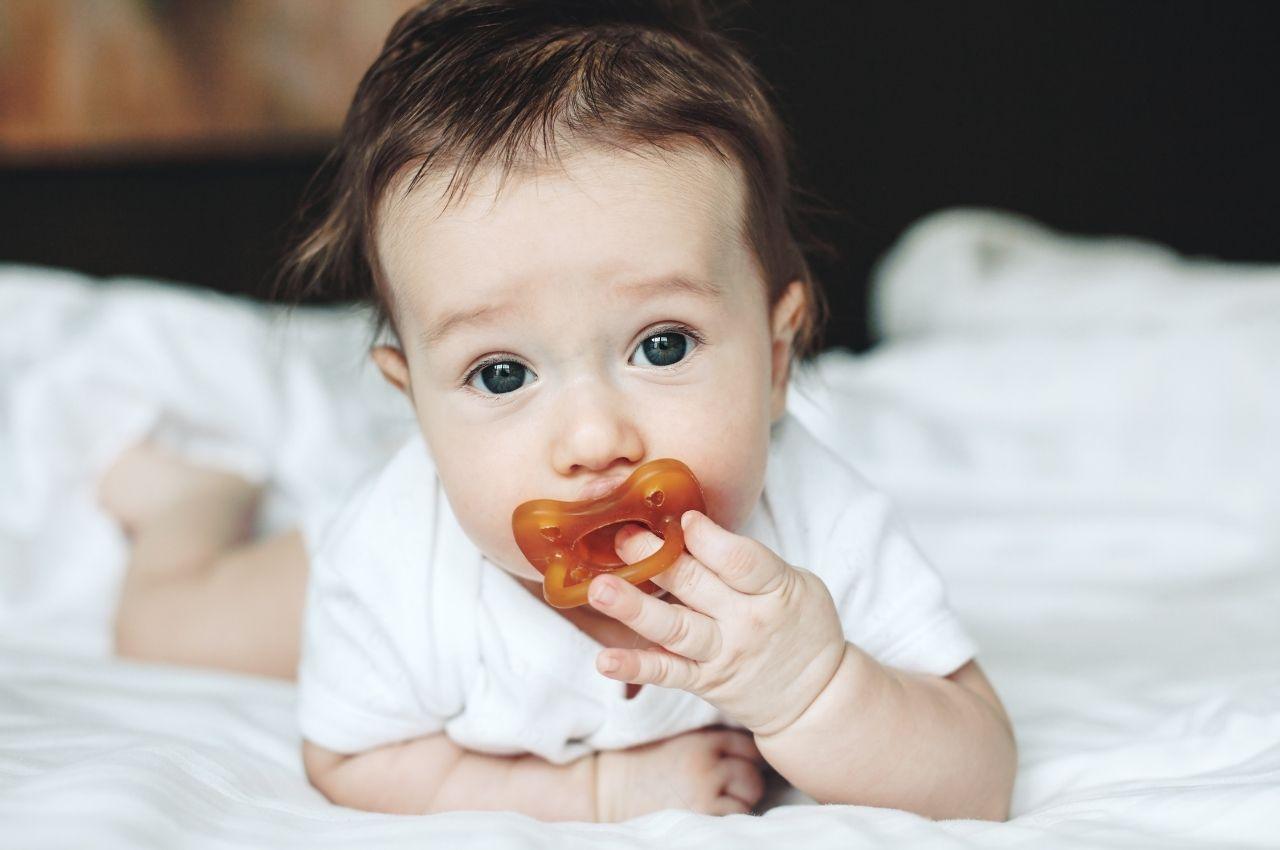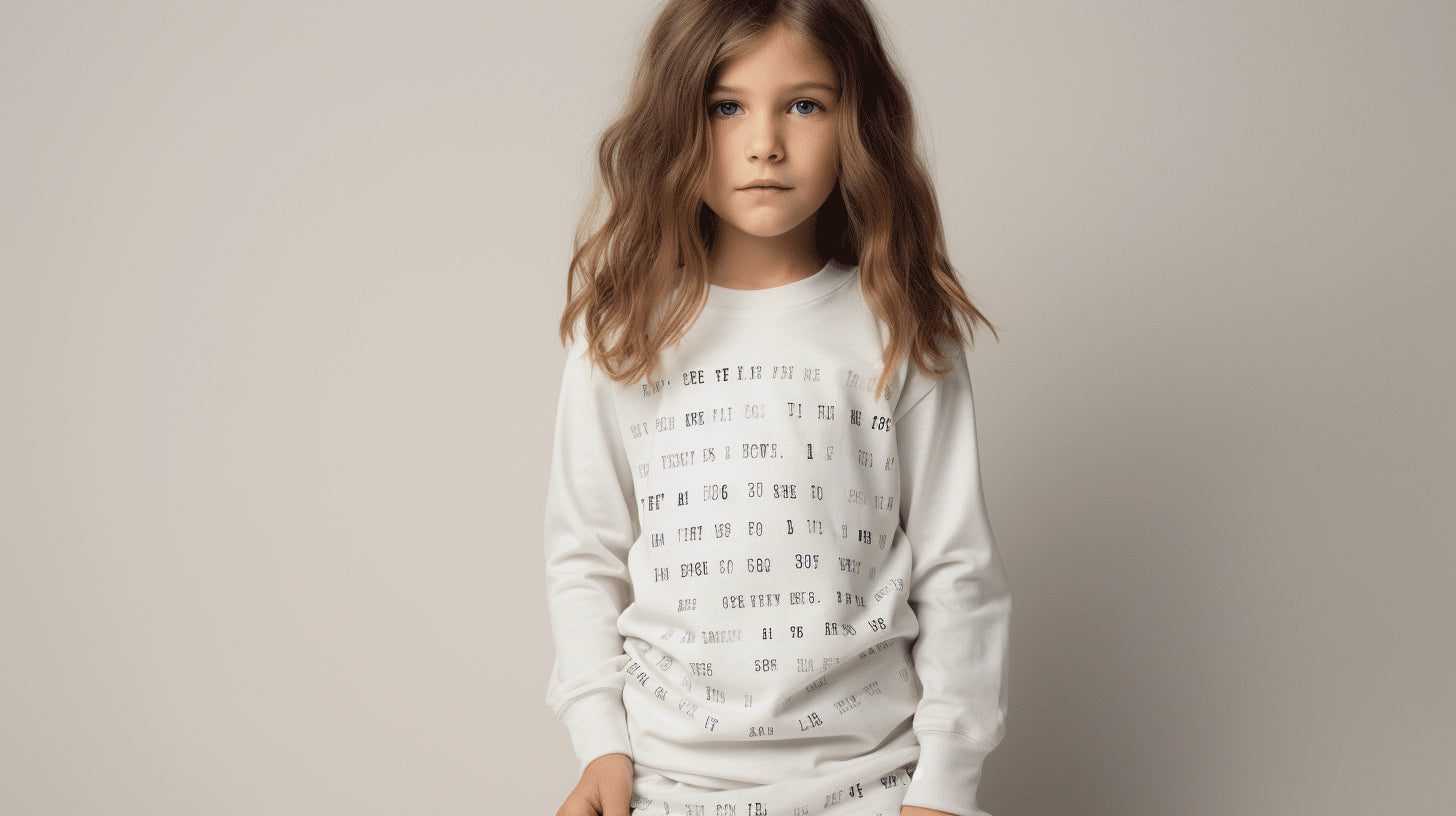Congratulations on your success! You have survived the newborn stage and now have a 4 month old baby. When they become more aware of the world around them and you better understand their personality, babies at this age can be a lot of fun. They will , however, experience drastic changes that will affect how they communicate with you, their sleep, their needs, their feeding schedules, and much more!
Keep reading to learn more about your 4 month old boy.
Developmental milestones for 4 month olds
Your 4-month-old baby is probably improving her hand-eye coordination. During waking hours, many babies this age explore their fingers and hands, and some (but not all) begin to use them to soothe themselves while they sleep. Babies are very curious about their surroundings and grab almost anything that comes near them. It was around this time that I started wearing earrings (big mistake). Babies at this age can also hold their heads higher and sit up with more help. Your baby is probably also able to follow objects with their eyes. Best of all, your four-month-old is definitely smiling and probably laughing at (or with) you!
Some babies at this age are still learning to roll in one direction (rolling in both directions will take several weeks or months). Tummy time is beneficial, but my sons didn't always enjoy it, which is probably why they took so long to crawl (don't worry, they eventually did!). Rolling over in sleep is probably the most frustrating step, but with this simple ability some babies can really move around and grab toys that are a little out of reach.
Your baby's growth
At this age, how much does your 4-month-old child weigh? How long do you think it will reach? Should you be worried about your child's development?
Above all, your child's pediatrician will tell you whether or not you should be concerned. If your baby's weight and height stay on their growth chart, even if they are in the lower or upper percentile, you probably don't have to worry. If you have any questions, don't hesitate to call your pediatrician or nurse.
If your 4-month-old baby is average, he will weigh about 6.8 kg for boys and 6.3 kg for girls and will be about 53 cm tall , according to WHO growth charts. Know that the most important thing is that your child stays on his own growth curve. If he started at the 15th percentile, he must stay on that percentile or go up, not down. Although some curves may vary slightly, your baby should stay on that curve until he no longer follows it as closely (or, again, until it increases). If your baby is just in the 10th percentile, that's not inherently "bad."
Let's take an example to understand these numbers, if your baby's height is at the 15th percentile for height, this means that 15% of the children are the same height as him or smaller, and that 85% are taller. A height at the 3rd percentile can therefore be normal, just as much as a height at the 97th percentile.
4 month old babies born premature
If your baby was born four weeks early (or more), you'll almost certainly need to factor in his developmental milestones using his modified age. The sleep patterns of premature babies seem to fall somewhere between their actual age and their modified age. Premature babies are no exception, as they grow at their own pace . Your baby may be ahead, behind, or on schedule in some areas, such as gross motor skills, but may be the opposite in others, such as fine motor skills.
I like to think that all babies develop their interests first because they simply do their best in that area. My eldest son got interested in sign language because he had a lot to talk about (and still does!), but his little brother was never interested and therefore never did. (and he is still a child who speaks little!). Finally, unless your child is developmentally delayed, try not to equate them with anyone too often (even their own siblings!). If you should be concerned, your doctor will let you know.
Sleep regression at 4 months and baby's sleep needs
At 4 months, your baby needs about 11 to 12 hours of sleep at night and 3 to 4 hours of sleep during the day , for a total of about 16 hours of sleep per 24 hour period. Of course, every baby is different, and some will need less sleep while others will need more. These are averages, and it is essential to pay attention to your own child. Although some babies seem content despite their apparent lack of sleep, the majority of babies show signs of lack of sleep through their mood and behavior. Picky babies are generally clingier and need more sleep.
If your baby is giving you a hard time during the day, try reducing his awake time and getting him to sleep more. You may be surprised to discover a happy little being inside!
It's likely that your baby's sleep has changed drastically, leading to sleep deprivation. My son spent a lot of time in deep sleep as an infant, but after sleep regression at 4 months , he now goes from light sleep to deep sleep and goes through sleep cycles.
He might wake up even more often at night if he doesn't know how to get back to sleep, which leaves you feeling tired. Keep in mind that he can't go back to the way he slept when he was a newborn, so it's important to help him learn to sleep this new way. Many babies will manage on their own, while others will need your help.
Discover 20 tips here , to learn more about your 4-month-old baby's sleep regression. (one of the most complicated periods)
The amounts of baby food
Another thing that can change at this age is your 4-month-old's schedule. We often see a return to nighttime feedings around this age, even if your baby slept through the night without feedings. Remember, newborns don't move much, but now your baby can sit up or roll over, spend more time awake, and burn more calories throughout the day.
If you're bottle-feeding your baby, ask yourself if he's ready for a bigger bottle of breastmilk or formula. Typically babies drink 120-150ml breastmilk bottles or 180-210ml formula bottles at this age. Because breast milk is more concentrated than formula, bottles are smaller. If you are offering a mix, it will likely fall right in the middle. However, some infants, especially those with reflux, cannot tolerate large feedings. The first thing to remember is that your baby needs a certain amount of calories every day. He will need more calories at night if he takes in less during the day.
We don't want to deprive your baby of the calories he needs; we just want him to get the majority of it during the day, if possible, to keep him on the growth chart.
Should I start eating solid foods? Read this article before doing so
The general opinion is that no, not yet. Solid foods are added around 6 months of age . However, consult your doctor to determine what is best for your child.
Example schedule for a four-month-old baby
| Hourly | Activity |
| 7:00 | Lift and bottle |
| 8:30 | Siesta |
| 10:00 | Feeding bottle |
| 11:30 | Siesta |
| 13:00 | Feeding bottle |
| 14:00 | Siesta |
| 4:00 p.m. | Feeding bottle |
| 4:30 p.m. | Siesta |
| 19:00 | Lying down (asleep at this time) |
Baby poo - not glamorous but important
Would you have thought for a second that you would talk so much about poo after having children? Ever since I became a mother, I've marveled at the 30-minute conversations I've had about poop! Still, this is essential knowledge, as your baby's poop will reveal significant health issues.
The color of the poop can vary from a mustard yellow poop for a breastfed baby to a more traditional (and smelly) brown poop when the baby starts eating solid foods. Call your doctor right away if your baby's stools are red (which indicates the presence of blood), chalky white (which indicates a lack of bile), or black (which is normal for newborns but may indicate the presence of of blood in the gastrointestinal tract after 3 days). Any other color is usually fine, although it's bright green and frothy , which means your baby is definitely breastfed and has more front milk than back milk, and needs to drain your breast .
Fore-milk and hind-milk are not different types of milk, they are just terms that refer to whether you consider milk at the beginning or end of a feed. The term “earlier milk” refers to milk at the beginning of the feeding, the term “afterward milk” refers to milk at the end of the feeding, which has a higher fat content than the milk at the beginning of the feeding in question .
However, if your baby is not acting like himself, he may have a virus.
Baby poop is always more runny than our own , so there's normally nothing to worry about unless it's excessively runny, which could indicate diarrhea. It's best to talk to your doctor about this so they can rule out any illnesses or other health issues. If your baby is straining and his stools are too hard, indicating constipation (I explain how to deal with this here), you may be giving him too much solid food and/or not enough liquids. Adjust the proportion of milk to solid food, but if that doesn't work or you're worried, see your doctor right away!
personality and temperament
Oh, the good times! Every day, I'm sure, your baby reveals more and more of his personality. And almost everyone is happy because a lot of these revelations are pleasant. However, some aspects are not so pleasant. Before I had a child, I believed that a lot of behavior was learned...that we teach our children to act in certain ways. I was completely wrong! I now firmly believe in the power of magic. My sons were born with strong personalities and mannerisms, and as I grew up I noticed they carried the same characteristics, from being afraid of strangers at a young age to their first reaction to certain circumstances.
Here is a summary of the 9 characteristics that determine the character of your baby:
Intensity
The intensity with which he reacts to something (good or bad). Babies who "go from 0 to 100 in a split second" are extremely dynamic!
Perseverance
How quickly your child gives up a toy that has been taken away from them. Babies who are easy-going tend to overcome problems easily and move on. It's not a bad quality to have. Hard-working babies don't give up easily. No way. It's not bad quality either. There are two distinct groups of babies who can handle life in different ways.
sense of perception
How aware your baby is of what is going on around him. It is possible that those who hear "he is always on alert!" have a perceptive child.
Adaptability
This is a measure of how quickly your baby adapts to new circumstances. There are babies who are also laid back, only crying for brief periods in response to things they don't like.
Regularity
This criterion indicates how predictable your baby is. Is it possible to set a clock based on what time he poops or wakes up for the day? These babies are extremely well-tuned.
Energetic
Do you have a constantly moving baby like the Energizer® Bunny? If so, your child will likely be very active for several years. It's time to start exercising so you can keep up! (I know what I mean !)
The first reaction
Is your child's first reaction usually negative? I've been amazed at how many times my son has said "no" only to say "yes" minutes (or seconds) later. His first reaction is always negative, and I had to learn not to take it as his "final answer".
Mood
Some babies seem to be very happy almost all the time, while others seem to be very sad. Severe babies can be hard to get to smile (but when they do, they're not faking it!).
The different types of toys to entertain.
Most babies don't need to buy toys because they are so curious about everything. Most babies like to play with crumpled up paper or other household products. They have no idea of the value of a product. Many parents spend hundreds of dollars on toys only to find that their child prefers to play with the packaging. And some toys are downright scary!
That said, we understand that it's not always possible to keep babies happy all day. Having a few toys in your toolbox is a must. Here are some of my favorite toys:
Pedagogic
My son learned his alphabet from a learning table we had at home when he was very young. Unfortunately, as I had a baby a long time ago, I don't remember the exact chart we had, but I know it was beneficial. He liked to emphasize the letter "O". He started reading at the age of three and in CM2 he read like a 3rd grader. I'm not telling you this to brag, but he enjoyed reading for hours when he was very young, and I believe this had a significant effect on his reading comprehension growing up.
So if your baby is interested, I believe these learning tables will work. As I said before, I believe that babies exercise the muscles that interest them. It can collect dust if your baby is not interested in that stuff. You'll never know until you give it a shot.
Gross Motor
Most babies who like to move develop their gross motor skills on their own. My son has always preferred to be on his feet, which is why he didn't crawl until he was ten months old and only walked three weeks later. Why get on all fours when you can stand up? Later he became a runner. What a funny coincidence! He too will spend hours jumping through doors in his jumping harness.
Teethers and other activities
Your child may or may not be teething, but they start drooling very early! My first child had his first tooth when he was five months old, so it's likely. My best friend's son, on the other hand, didn't get his first tooth until he was one year old, and he was weaned from breastfeeding! You never know, and like I said before, all babies have their own schedule. Either way, you might want toys that you can safely put in your baby's mouth, because that's what many babies seem to want.
Fine motor skills
You usually have to wait until your baby is a bit older to develop their motor skills to pinch things, because we don't want them choking on anything. Many parents wait until their child is old enough to eat cereal or whole peas before giving them to them. Therefore, at this age, I don't have any fine motor toy suggestions.
Books for your four month old
Think it's too early to start reading? No way ! We started when my boys were 4 months old, and as they became more mobile, they often explored their room while I was reading, came to see the book, and then continued exploring. And if you think they're not paying attention, they often are (so limit adult talk in the car as much as possible when they grow up ;)).
When should you worry about your 4 month old baby's growth?
I agree that you are the best judge of your child, so if you feel like something is wrong, trust your instincts and see your doctor. If possible, also consider getting a second opinion. If you feel like something is wrong, chances are it is, and it's always better to find out sooner rather than later.
That said, when you have a new baby to raise and you don't want to do it "wrong", it's easy to stress unnecessarily. I've been there several times! You are not the only person to think so. Remember that all babies grow at their own pace , but if you notice your baby falling further and further behind what he's "supposed" to, see your pediatrician or other specialists. Early intervention is often the best course, and you may be able to help your child get back on track.
That's all there is to it. You've probably discovered a lot about your four-month-old baby. Tell us in comments!









